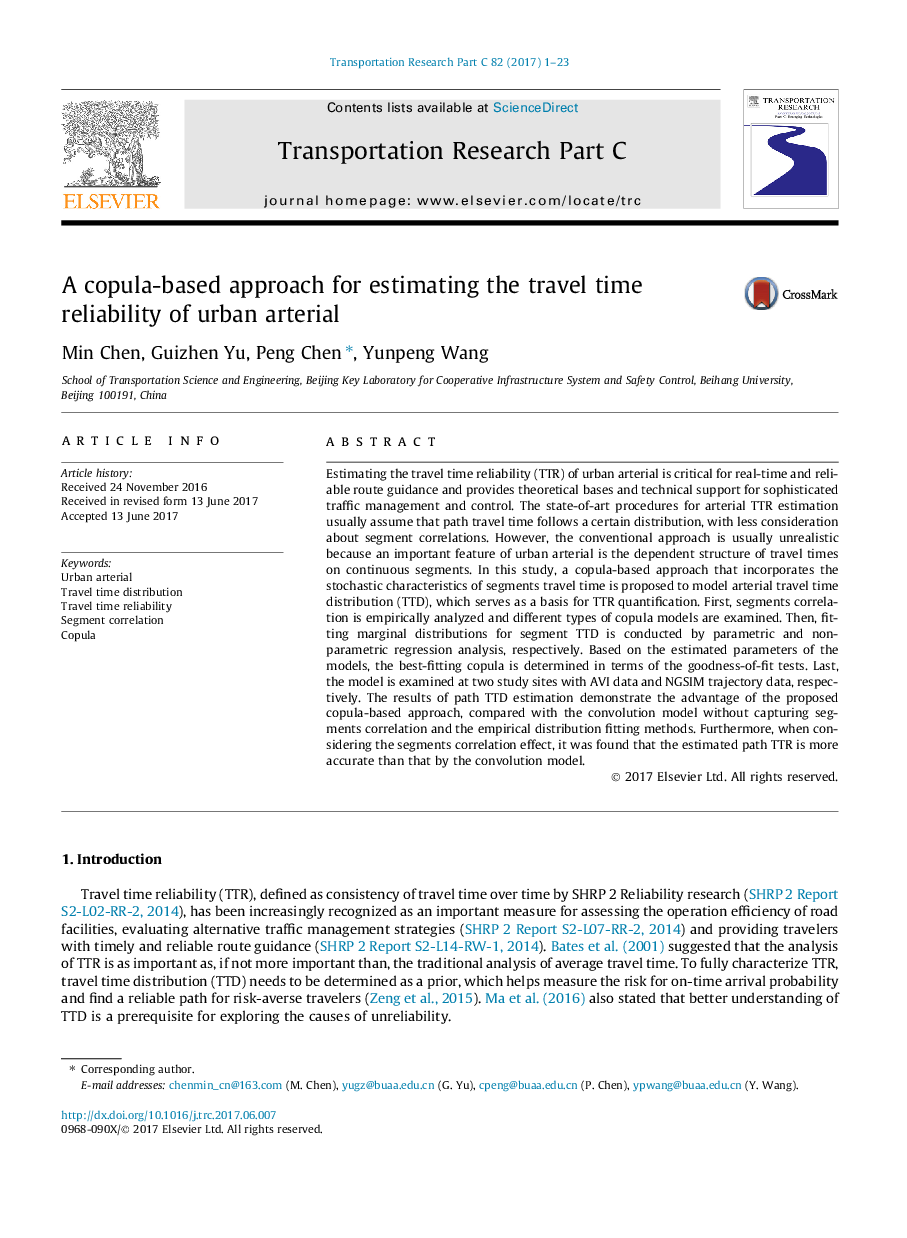| Article ID | Journal | Published Year | Pages | File Type |
|---|---|---|---|---|
| 4968479 | Transportation Research Part C: Emerging Technologies | 2017 | 23 Pages |
Abstract
Estimating the travel time reliability (TTR) of urban arterial is critical for real-time and reliable route guidance and provides theoretical bases and technical support for sophisticated traffic management and control. The state-of-art procedures for arterial TTR estimation usually assume that path travel time follows a certain distribution, with less consideration about segment correlations. However, the conventional approach is usually unrealistic because an important feature of urban arterial is the dependent structure of travel times on continuous segments. In this study, a copula-based approach that incorporates the stochastic characteristics of segments travel time is proposed to model arterial travel time distribution (TTD), which serves as a basis for TTR quantification. First, segments correlation is empirically analyzed and different types of copula models are examined. Then, fitting marginal distributions for segment TTD is conducted by parametric and non-parametric regression analysis, respectively. Based on the estimated parameters of the models, the best-fitting copula is determined in terms of the goodness-of-fit tests. Last, the model is examined at two study sites with AVI data and NGSIM trajectory data, respectively. The results of path TTD estimation demonstrate the advantage of the proposed copula-based approach, compared with the convolution model without capturing segments correlation and the empirical distribution fitting methods. Furthermore, when considering the segments correlation effect, it was found that the estimated path TTR is more accurate than that by the convolution model.
Related Topics
Physical Sciences and Engineering
Computer Science
Computer Science Applications
Authors
Min Chen, Guizhen Yu, Peng Chen, Yunpeng Wang,
